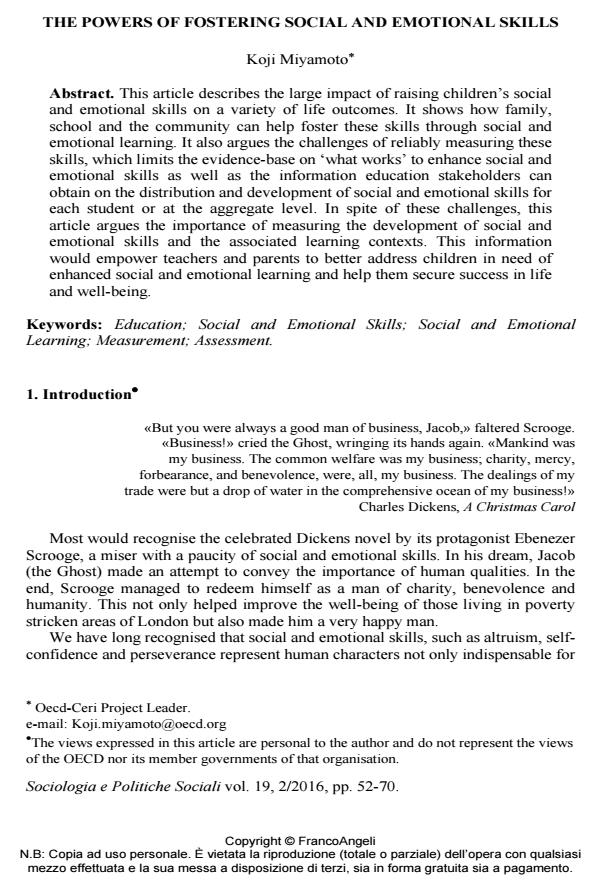The powers of fostering social and emotional skills
Titolo Rivista SOCIOLOGIA E POLITICHE SOCIALI
Autori/Curatori Koji Miyamoto
Anno di pubblicazione 2016 Fascicolo 2016/2
Lingua Inglese Numero pagine 19 P. 52-70 Dimensione file 321 KB
DOI 10.3280/SP2016-002004
Il DOI è il codice a barre della proprietà intellettuale: per saperne di più
clicca qui
Qui sotto puoi vedere in anteprima la prima pagina di questo articolo.
Se questo articolo ti interessa, lo puoi acquistare (e scaricare in formato pdf) seguendo le facili indicazioni per acquistare il download credit. Acquista Download Credits per scaricare questo Articolo in formato PDF

FrancoAngeli è membro della Publishers International Linking Association, Inc (PILA), associazione indipendente e non profit per facilitare (attraverso i servizi tecnologici implementati da CrossRef.org) l’accesso degli studiosi ai contenuti digitali nelle pubblicazioni professionali e scientifiche.
This article describes the large impact of raising children’s social and emotional skills on a variety of life outcomes. It shows how family, school and the community can help foster these skills through social and emotional learning. It also argues the challenges of reliably measuring these skills, which limits the evidence-base on ‘what works’ to enhance social and emotional skills as well as the information education stakeholders can obtain on the distribution and development of social and emotional skills for each student or at the aggregate level. In spite of these challenges, this article argues the importance of measuring the development of social and emotional skills and the associated learning contexts. This information would empower teachers and parents to better address children in need of enhanced social and emotional learning and help them secure success in life and well-being.
Parole chiave:Education; Social and Emotional Skills; Social and Emotional Learning; Measurement; Assessment.
Koji Miyamoto, The powers of fostering social and emotional skills in "SOCIOLOGIA E POLITICHE SOCIALI" 2/2016, pp 52-70, DOI: 10.3280/SP2016-002004